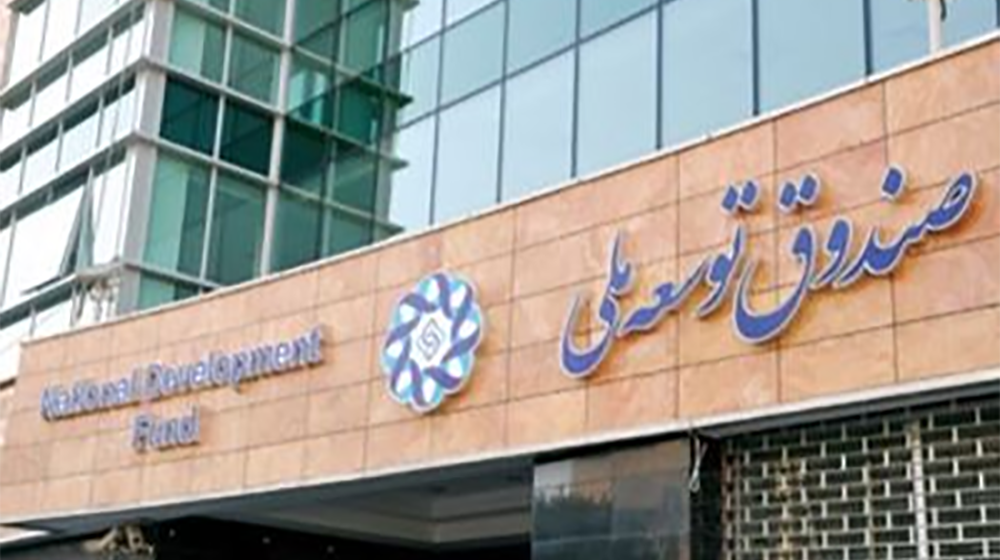"It is reasonably likely that extractive resource wealth benefits citizens, but there may be costs to society," it added.
In its latest Resource Governance Index report, the institute has given NDFI a score of 70 out of 100, which places the fund between Trinidad and Tobago’s Heritage and Stabilization Fund (74) and Peru’s Fiscal Stabilization Fund (69).

The Resource Governance Index assesses the quality of natural resource governance in 81 countries that together produce, among other commodities, 82% of the world’s oil, 78% of its gas and 72% of all copper, Resourcegovernance.org reported.
In fact, according to Financial Tribune, the assessment of the countries' sovereign wealth funds forms a subcomponent of the Resource Governance Index. The index is the sum total of 89 country-level assessments, formulated using a framework of 149 critical questions answered by 150 researchers, drawing upon almost 10,000 supporting documents.
As with any exercise of this type, there is some inherent uncertainty around the index scores. In practical terms, it may not be sensible to make conclusions based on small differences in scores. For this reason, results are grouped into performance bands: good, satisfactory, weak, poor and failing.
The index assesses 33 sovereign wealth funds that collectively manage assets worth at least $3.3 trillion. These funds exhibit a broad range of governance quality.
Colombia’s Savings and Stabilization Fund with $3.2 billion in assets was found to be the best-governed fund. Qatar Investment authority with over $338 billion in assets and Nigeria's Excess Crude Account with $2.4 billion were found to be the poorest performing (failing) sovereign wealth funds in the world.
Iran's Sovereign Wealth Fund
NDFI was created in the 2000s to save oil revenues to develop Iran and invest overseas for future generations. The wealth fund currently has $91 billion in reserves, Mohammad Hosseini, who represents the parliament on the NDFI governing board, said.
The government of President Hassan Rouhani has slammed the parliament time and again for tying its hands on access to NDFI.
As per the budget bill for the current Iranian year (March 2017-18), the government is tasked with depositing 30% of revenues earned from oil and gas exports to NDFI, up from 20% as per the budget law of the fiscal 2016-17.
However, the parliament has allowed the government to withdraw $2.3 billion from NDFI this year, more than 50% of which are to go to the defense sector.
The approved withdrawals are far from what the government needs to cover the deficit that has forced it to drastically cut spending in both state bodies and infrastructure projects suffering from underdevelopment in the past few years.
Rouhani says his government has deposited $40 billion into the fund since he took office in August 2013.
In a speech last month, he said his government had to deposit the sum at a time when it was grappling with unprecedented financial crisis as a result of diminished oil revenues over the past years.
“This is one of the wonders of history. We created the fund . . . to deposit [cash] when oil prices are high and to withdraw in days of hardship. But in hardship, we had to deposit again,” the president said.
Iran enjoyed sky-high crude prices for a few years, adjusting its spending with high revenues. Oil revenues topped $110 billion in the Iranian year to March 2012 under the previous Iranian administration, but the bearish crude market pushed them down to $14-15 billion in the Iranian year ending March 20, 2016.
Oil prices fell drastically in 2014, from over $100 per barrel to the record low of $30 in 2016.
Government revenues have seen the sharpest fall in history in recent years.
> Iran's Resource Governance Index
Iran scored 38, ranking 62nd in NRGI's overall Resource Governance Index.
Together with Iraq, Guinea and Lao People's Democratic Republic, which receive the same score, Iran falls in the range of countries with “poor” performance in management of natural resources.
Norway with a score of 86 was the best performing country worldwide and Eritrea with a score of 10 was the worst performing.
The Resource Governance Index assesses policies and practices that authorities employ to govern their countries’ oil, gas and mining industries.
The report found that most countries still face daunting challenges when it comes to governance of natural resources.
"Having billions of dollars’ worth of oil, gas or minerals below ground would suggest that citizens in a country should be well off, but the economies of countries rich in resources have grown more slowly than the economies of countries that are resource-poor," it reads, explaining that one reason for this disparity is the quality of governance.
Of the 81 countries included in the Resource Governance Index, 47 are classified by the International Monetary Fund as resource-rich, with oil, gas or minerals dominating the economy. A majority of these countries exhibit weak, poor or failing resource governance in index assessments.
"The extraction of oil, gas and minerals is one of the most politically, socially and economically complex undertakings in development … It has produced trillions of dollars in revenues. These vast sums of money contrast cruelly with the poverty of many countries where resources are found—1.8 billion people live in poverty in the scores of countries assessed in this index," wrote Daniel Kaufmann, president and CEO of Natural Resource Governance Institute in the introduction of the report.
"The empirical evidence is clear: Changing this dire situation requires improving governance—the institutions, rules and practices that determine how company executives and government officials make decisions and engage and affect citizens, communities and the environments they inhabit."


